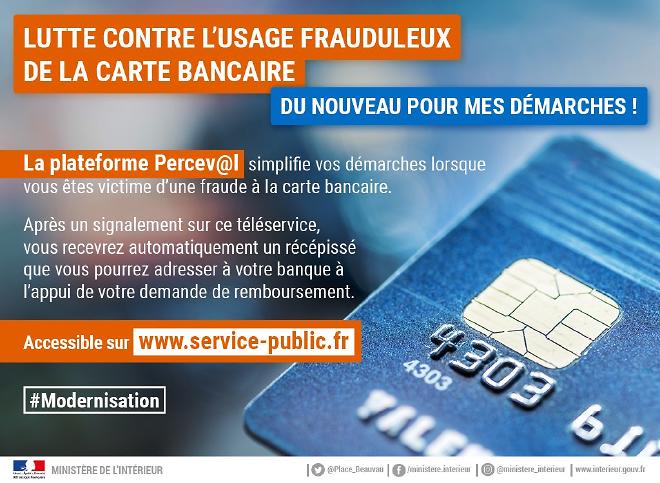Card Fraud: 18,000 Notifications in Three Months

In line with the digital security project introduced in February, Police de Sécurité du Quotidien (PSQ), several tools have been implemented. Perceval is a digital platform allowing for the collection of banking data and use cases reported by fraud victims. It was launched in June and already recorded 17,831 online notifications, over €5.5 million in damage.
By way of addressing the recurring issue of card fraud in France, the cybercrime prevention centre (Centre de lutte contre les criminalités numériques – C3N) and the Gendarmerie Nationale unveiled Perceval. This service has been available through service-public.fr for three months already, and proved successful in helping card fraud victims through the relevant procedures.
This platform already contributed to opening 17 investigations, and 9 files have been sent before the Courts. Roughly 8,000 notifications dealt with amounts of up to €2,000; over 350 referred to amounts of €2,500 and more. And 42,334 fraudulent use cases have been recorded these past three months: roughly 270 notifications per day.
The C3N deems that fraud figures on payments issued in France should increase again. In order for this centre to improve their investigation and detection processes when it comes to large-scale fraud cases, they are planning to hire more team members: six gendarmes, dedicated full-time to Perceval.
Comments – Perceval fighting card fraud
Until recently, formal complaints could only be filed at a police station. Perceval contributed to changing this. Cardholders may rely on this platform to notify fraud cases, have stolen amounts refunded more easily, and data can be retrieved by investigation services. They can cross-reference information (home address, e-mail, IP address, etc.) to track down the source for each fraud case, while also focusing on preventing additional cases.
Following this success, another platform should soon be introduced: Thésée, mostly meant for notifying online fraud cases. It would be monitored by judicial police teams for fighting cybercrime (Sous-direction de la lutte contre la cybercriminalité – SDLC), and intended to deal with ransomware, e-mail hijacking, online-based blackmail, and even fake e-commerce sites.
